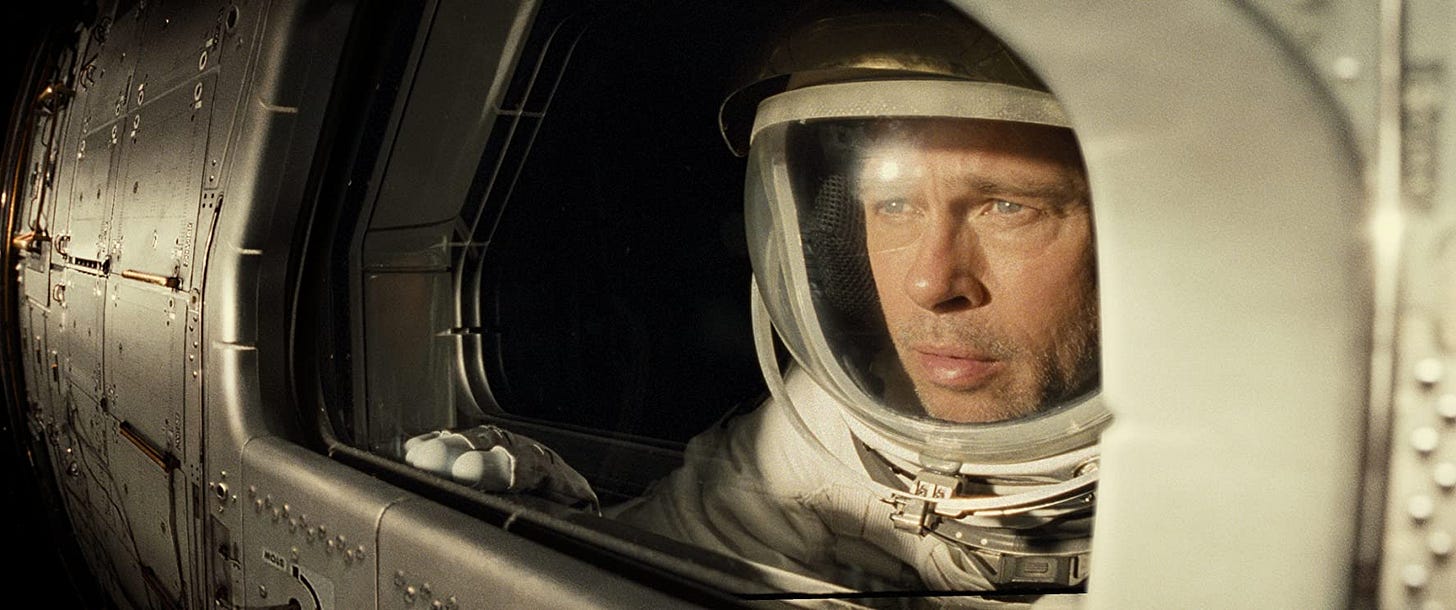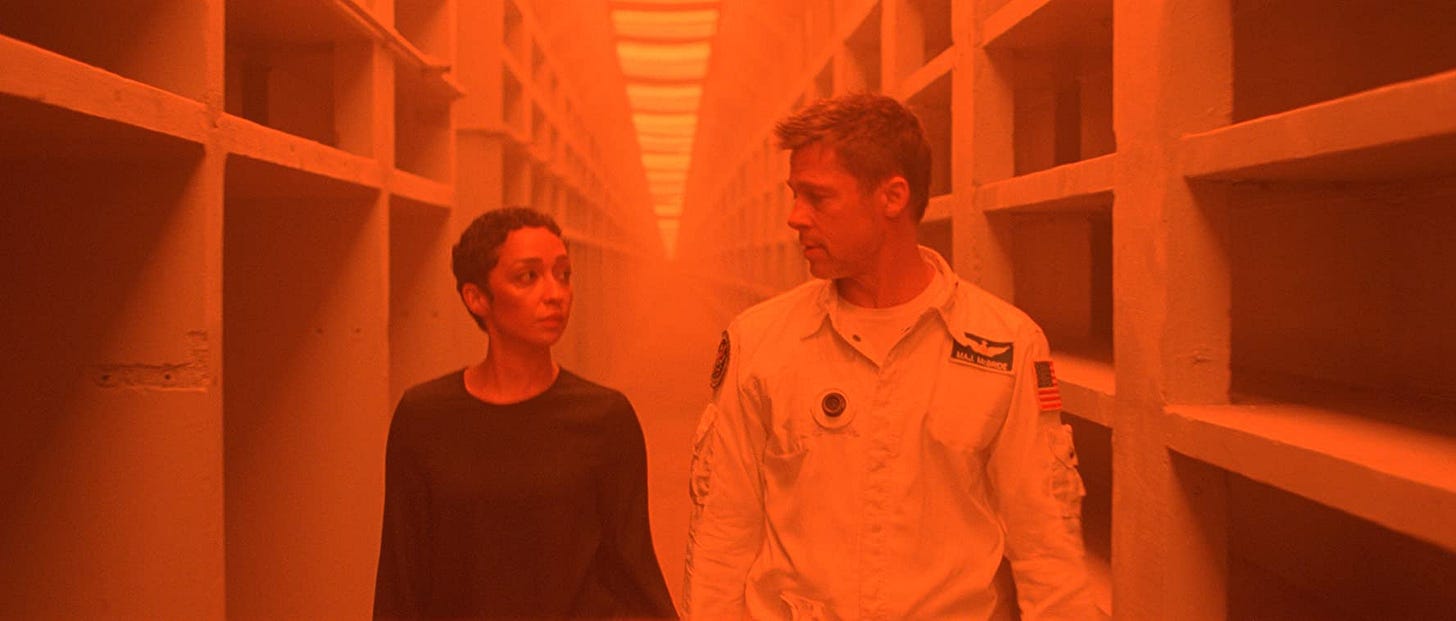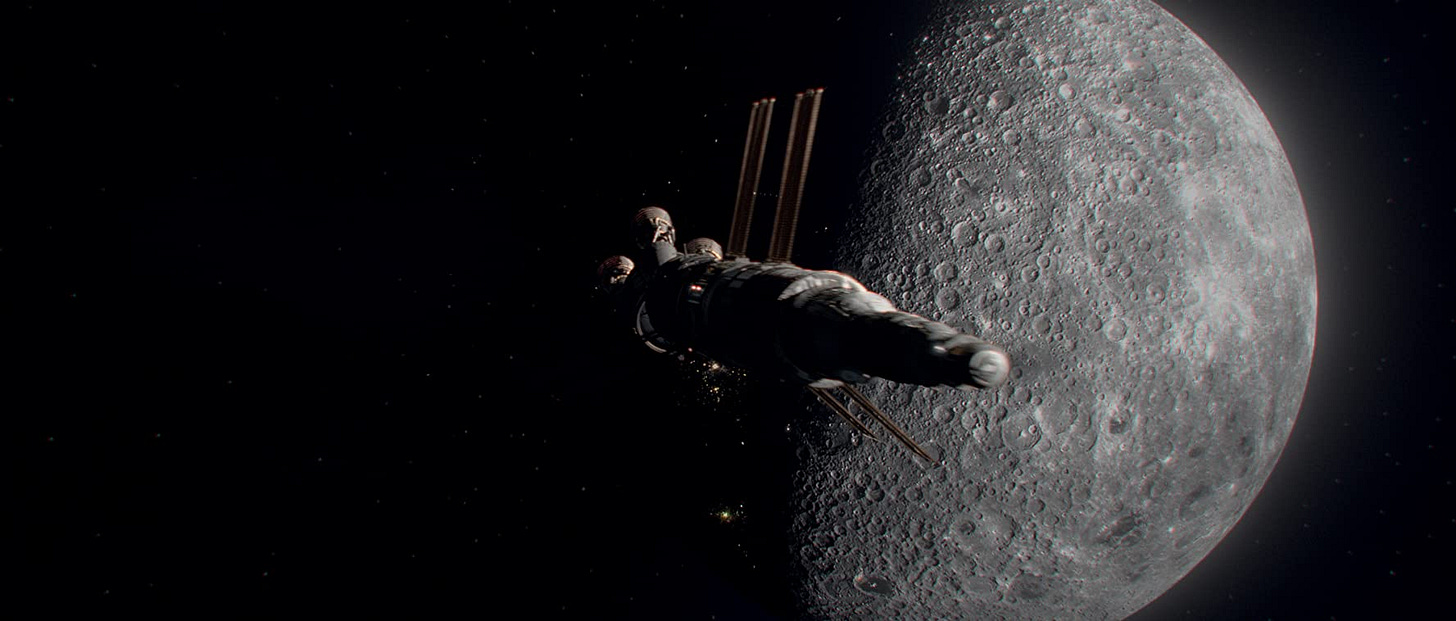Brad Pitt, 'Ad Astra' fly but rarely soar | Review
SUMMARY
Ad Astra marries stunning production design, visual effects, and score with a commanding lead performance from Brad Pitt. The result is a good sci-fi parable about fathers, sons, generational divides, and manhood. But there's a fatal flaw that keeps the movie from being as great as it could -- and should -- have been
STORY
In the near future, astronaut Maj. Roy McBride (Brad Pitt) survives an unexplained catastrophe caused by something called The Surge. The source of this power surge seems to be Project Lima, a spaceship near Neptune commanded by McBride's father (Tommy Lee Jones), who left decades ago and was thought dead. Roy sets out for Mars, where he hopes to relay a message to his father to stop The Surge before it wipes out mankind.
DIRECTION
James Gray has been making good movies for decades. Despite this, he never ascended to the upper echelon of modern American filmmakers. Ad Astra is easily his highest-profile film to date, and for those familiar with Gray's work, the quality of his work here should come as no surprise. Ad Astra is not a long movie, but Gray paces it very deliberately. His camera is well-placed and he allows Brad Pitt to bask in close-ups frequently. Although heavily influenced by Stanley Kubrick and 2001: A Space Odyssey, Gray's vision of near-future space works, at least aesthetically.
It's a shame, then, that Gray doesn't trust his audience enough to let them figure things out on their own. Character motivations, wonderfully internalized by Pitt's performance, are explicitly stated via scenes of Roy undergoing regular psychiatric evaluations (think Blade Runner 2049). Even worse is the incredibly miscalculated narration that occurs throughout the film. Plot machinations, backstories and inner monologues all become externalized, robbing the movie of its inherent mystique and curiosity.
Filmmakers like Christopher Nolan have (rightly) been criticized for being too expository with their writing, having characters that outright explain what's happening rather than using basic visual storytelling or letting audiences glean that information for themselves. (Think of the Ellen Page character in Inception.) But what Gray has done here is even worse. This is akin to the poorly-received Harrison Ford narration in the theatrical cut of Blade Runner. It's rare to see such an otherwise strong movie nearly undone by a single element.
ACTING
Pitt is excellent, as usual. Criticisms of him being blank or non-emotive would be understandable if the camera didn't linger so long on Pitt's face, reading the myriad emotional cues that he runs through in scene after scene. Like I said about his work in Once Upon a Time... in Hollywood, it doesn't strike me as a showy enough performance to garner awards attention. That said, it seems to be his year in a lot of ways, so we may see him nominated for either (or both) of these movies anyway, and that would be fine.
Jones has what amounts to an extended cameo, and makes the most of limited screen time. Donald Sutherland's role is arguably pointless, but it's always nice to see him. Ruth Negga only appears in the second act, but her character proves crucial and Negga is aces, as usual. Other actors are fine but aren't around enough to make much of an impression.
EVERYTHING ELSE
Production design is excellent, if a little too Kubrickian at times. Visual effects are strong, Max Richter's score is excellent, and the 35mm lensing by Hoyte van Hoytema is also good (though not as good as his work on Interstellar). Sound design is stunning; if you have an IMAX venue in your area, Ad Astra is worth the surcharge.








